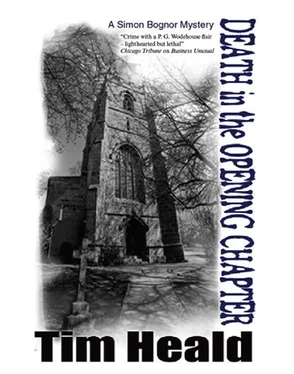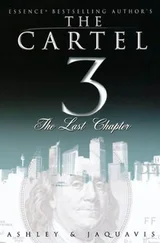Tim Heald - Death in the opening chapter
Здесь есть возможность читать онлайн «Tim Heald - Death in the opening chapter» весь текст электронной книги совершенно бесплатно (целиком полную версию без сокращений). В некоторых случаях можно слушать аудио, скачать через торрент в формате fb2 и присутствует краткое содержание. Жанр: Криминальный детектив, на английском языке. Описание произведения, (предисловие) а так же отзывы посетителей доступны на портале библиотеки ЛибКат.
- Название:Death in the opening chapter
- Автор:
- Жанр:
- Год:неизвестен
- ISBN:нет данных
- Рейтинг книги:5 / 5. Голосов: 1
-
Избранное:Добавить в избранное
- Отзывы:
-
Ваша оценка:
- 100
- 1
- 2
- 3
- 4
- 5
Death in the opening chapter: краткое содержание, описание и аннотация
Предлагаем к чтению аннотацию, описание, краткое содержание или предисловие (зависит от того, что написал сам автор книги «Death in the opening chapter»). Если вы не нашли необходимую информацию о книге — напишите в комментариях, мы постараемся отыскать её.
Death in the opening chapter — читать онлайн бесплатно полную книгу (весь текст) целиком
Ниже представлен текст книги, разбитый по страницам. Система сохранения места последней прочитанной страницы, позволяет с удобством читать онлайн бесплатно книгу «Death in the opening chapter», без необходимости каждый раз заново искать на чём Вы остановились. Поставьте закладку, и сможете в любой момент перейти на страницу, на которой закончили чтение.
Интервал:
Закладка:
What was undoubtedly suspicious was the presence in the regiment of a young chaplain named Fludd.
Forget brigadiers, thought Bognor. Life was full of people who had risen to the surface of life like scum on stock, and Brigadier Horace was one such. Bognor regarded himself as a front-line soldier – the sort of man who, at the Battle of the Somme in the Great War, would have gone over the top in front of his platoon, been cut to pieces by enemy machine gun fire and won a posthumous Military Cross. Horace Blenkinsop, the barking brigadier, would meanwhile have been watching events, if at all, through binoculars in a requisitioned chateau, while stuffing his face with stolen champagne and plover’s eggs.
Bognor recalled his grandfather, a veteran of this very campaign, gassed and now gone to God, telling him that in his battalion, as in others, they had something called HQ company. No one knew what men in HQ company actually did, except issue more and more pieces of regulatory paper with which the rest of the battalion wiped their bottoms. During the war, more and more people gravitated to HQ company, where they performed more and more meaningless rituals, whose only apparent purpose was to make life difficult to impossible for those who actually did the work. Life, said Bognor’s grandfather, was much the same: far too many people in HQ company getting in the way of men on the ground trying to do a decent day’s work, like him and his grandson.
Thus Brigadier Blenkinsop. Yet, such was life that Brigadier Blenkinsop was widely regarded as a bit of a catch. He made programmes for television about battles in which he had not fought and of which he knew little. He opined in the Daily Telegraph and other public prints, telling his fellow man what to think about military warfare, but also everything else from greenhouse emissions (a fiction, fanned by leftist scaremongers) to railway trains (vanished due to that damned fellow Beeching) and gastronomy (days were when a celebrity chef was just a cook and garlic was something Johnny Foreigner used to flavour horse-meat).
Bognor did not care for the brigadier or for his sort. Whitehall was rife with brigadiers, barking orders, strutting about and getting in the way. Nevertheless, and notwithstanding, you had to hand it to him. Bognor was reminded of an elderly English rugby footballer, a cumbersome number eight, who, way past his prime, somehow survived, and indeed prospered, where younger, fitter, more agile and talented rivals came and usually went. This was achieved by stealth and what a dead journalist, much admired by Bognor, once described as ‘rat-like cunning’. This was possessed in spades by the ancient rumbling English rugby player. He read the game with deceptive ease and was able to anticipate its direction with unerring precision. So, without apparent effort or indeed movement, or endeavour of all but the most notional kind, he was always able to be at the centre of important play, where his strength and experience proved decisive. Others ran hither and yon, charging about like headless chickens, while the old bull elephant surged magnificently, and in an almost stately manner, through the wildest passages of the game.
So it was with the brigadier. Throughout his life, he seemed, uncannily, always to be in the right place at the right time. When dead men’s shoes needed to be filled, the brigadier was always close by, available to step into them at a moment’s notice. When a desk needed to be driven or an opinion expressed, Horace was available, amenable, willing and able. By his expert reading of the game of life, he had always been able to keep at least a pace or two ahead of his often more talented rivals, without exposing himself to needless risk, hazard or what they might have described as effort of any kind. His was a triumph of cunning over exertion, of wise inertia as compared with the charge of the light brigade. His was a staff officer’s life, the epitome of one who had spent his time in the cushioned security of HQ company. And it was he who was to be the keynote speaker at this year’s festival, and getting him was considered rather a coup.
Horace and his wife, Esther, had spent the previous night at what had, for many years, been called the Fludd Arms, but had recently been rechristened the Two by Two, after it had been sold off by Sir Branwell to a young man from the East End of London, who had reinvented himself as Gunther Battenburg and turned the ancient hostelry into a gastropub, to the consternation of the local community and to the interested attention of inspectors from the Michelin Guide and others. It had also begun to attract a significant and, to Sir Branwell and Lady Fludd, unwelcome sort of visitor. They took photographs of each other during meal times and came for the slug muesli, the squirrel pavlova and the oeufs ananas. They had more money than sense, lived off bonuses and were, in a word, trendy. Sir Branwell regarded them much as he did seagulls and would have treated them similarly, given half a chance. He longed to have them up before him when he, or Camilla, were sitting on the bench, but so far neither he nor his wife had had the pleasure.
If the Reverend Sebastian had indeed been done in by an alien hand, then Brigadier Horace, the brigadier’s wife, Esther, and Gunther Battenburg would have to join the long list of suspects. Battenburg was gay and had no known partner. That is to say, he had formed no regular attachment and was for the purposes of the impending enquiry, single. This ‘long list’, including most residents of Mallborne, would, presumably, be narrowed down before too long, rather in the manner of literary prizes such as the Booker, the Costa and, indeed, the newly inaugurated Flanagan Fludd for the best novel with a beginning, a middle and an end. Of this, Sir Branwell had high hopes. He very much hoped that this unfortunate incident would not cause them to be dashed, or even put on ice for the time being.
‘Poor timing,’ said Sir Branwell, later in the library. ‘But then timing was never one of Sebastian’s things. Not that Sebastian did “things” when you come to think about it. “Things” weren’t Sebastian’s kind of thing, if you see what I mean.’
‘No,’ agreed Bognor, who understood perfectly. He was sometimes accused of not understanding even quite obvious matters. In fact, he understood more than others suspected and quite often more than was good for him. ‘Not a popular man, Sebastian.’
‘No,’ Sir Branwell said, ‘not unduly.’
‘So, no real friends but no real enemies either?’
‘You could say that.’ His host frowned.
‘Have you noticed,’ said Bognor, ‘that popularity nowadays breeds popularity? It’s the reverse of what I think we were taught at Apocrypha.’
‘That the eclectic and unusual was preferable to received wisdom.’
‘Something like that,’ said Bognor. ‘Nowadays we are all more or less victims of herd instinct. If everybody likes something it is automatically good. A best-seller is better than something only a minority admires. Majority taste is good taste.’
‘That’s new?’
‘I think so, yes. In the old days someone like the Reverend Sebastian would have been accepted in a way that he wasn’t nowadays.’
‘Because he was odd?’
‘Maybe,’ said Bognor, ‘maybe not.’ He was thinking. It made him frown. ‘It’s to do with dumbing down. We distrust anything that’s out of the ordinary. We live in the age of the common man. If the common man thinks something’s good, then it is by definition good. If not, it’s unpopular. Ergo bad.’
‘Elitist?’ asked Sir Branwell who recognized the argument and sympathized with it.
‘Could be,’ said Bognor, ‘but not necessarily so. Manchester United are popular and excellent. Accrington Stanley less so. That doesn’t make Accrington Stanley bad.’
Читать дальшеИнтервал:
Закладка:
Похожие книги на «Death in the opening chapter»
Представляем Вашему вниманию похожие книги на «Death in the opening chapter» списком для выбора. Мы отобрали схожую по названию и смыслу литературу в надежде предоставить читателям больше вариантов отыскать новые, интересные, ещё непрочитанные произведения.
Обсуждение, отзывы о книге «Death in the opening chapter» и просто собственные мнения читателей. Оставьте ваши комментарии, напишите, что Вы думаете о произведении, его смысле или главных героях. Укажите что конкретно понравилось, а что нет, и почему Вы так считаете.












